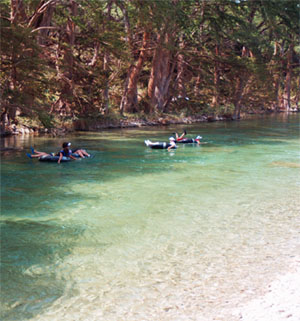The vast majority of climate models predict more variable rainfall with greater periods of drought in the next 50 to 100 years. However, researchers do not yet understand how increased drought and more variability in drought stress will affect ecosystem structure and function. For example, in ecosystems such as central Texas grasslands, where rainfall is already highly variable and drought can be severe, less rain or less frequent rain may push the ecosystem past a threshold, especially in an absence of brush management, to where grasslands are not sustainable.
Alternatively, drought-prone ecosystems that already face extremely variable rainfall may be well equipped to withstand increased drought. How drought alters ecosystem function will be important for both the ecosystem itself and for ecosystem feedbacks to climate change. Continue reading Wildlife Habitat Response to Climate Change
